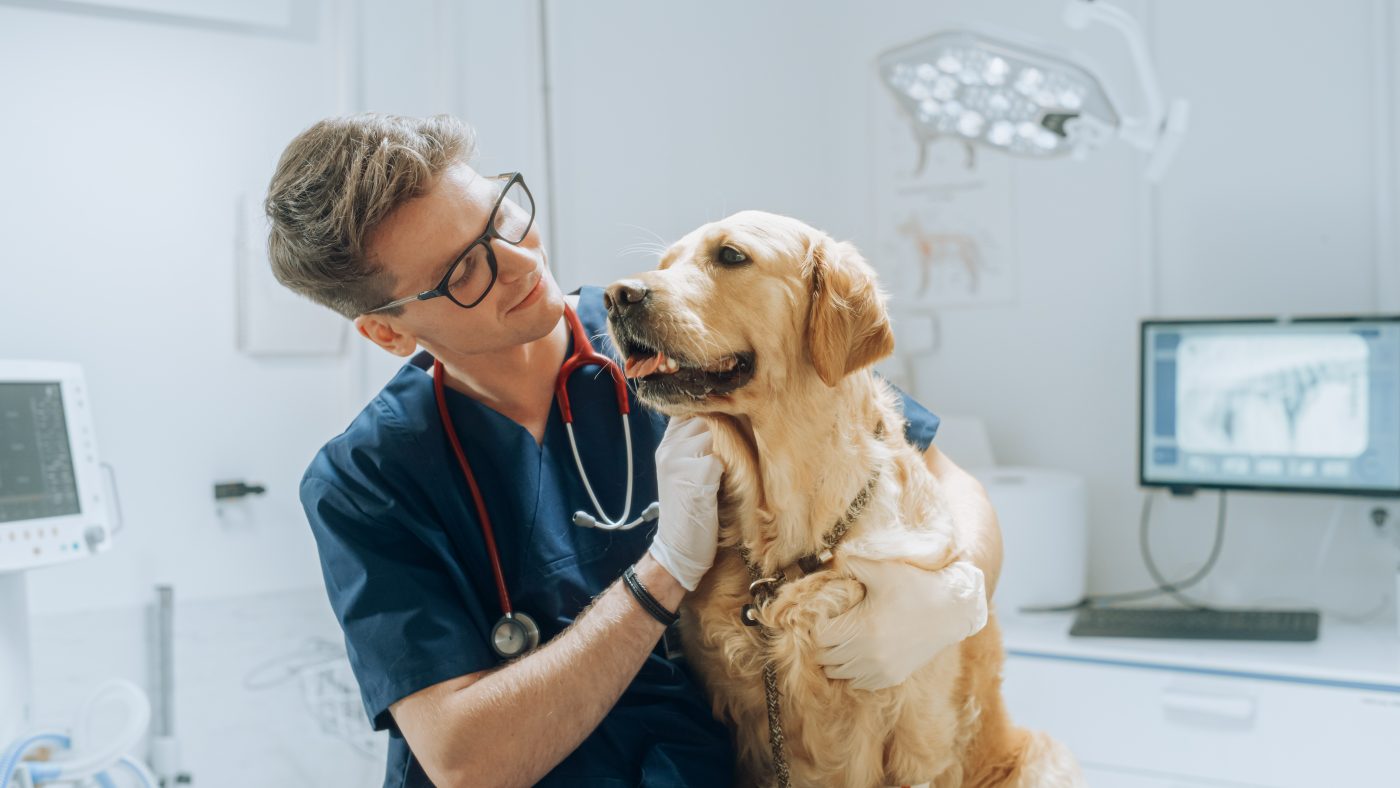 Shutterstock
Shutterstock
Regarding your dog’s health, being proactive and informed is essential. Veterinarians are experts in animal care, but as a pet owner, it’s important to ask the right questions to ensure your dog receives the best treatment possible. Whether you’re visiting the vet for the first time with a new puppy or taking your senior dog in for a routine check-up, knowing what to ask can help you better understand your dog’s health, anticipate any potential issues, and provide the best care for your furry friend.
What Vaccinations Does My Dog Need?
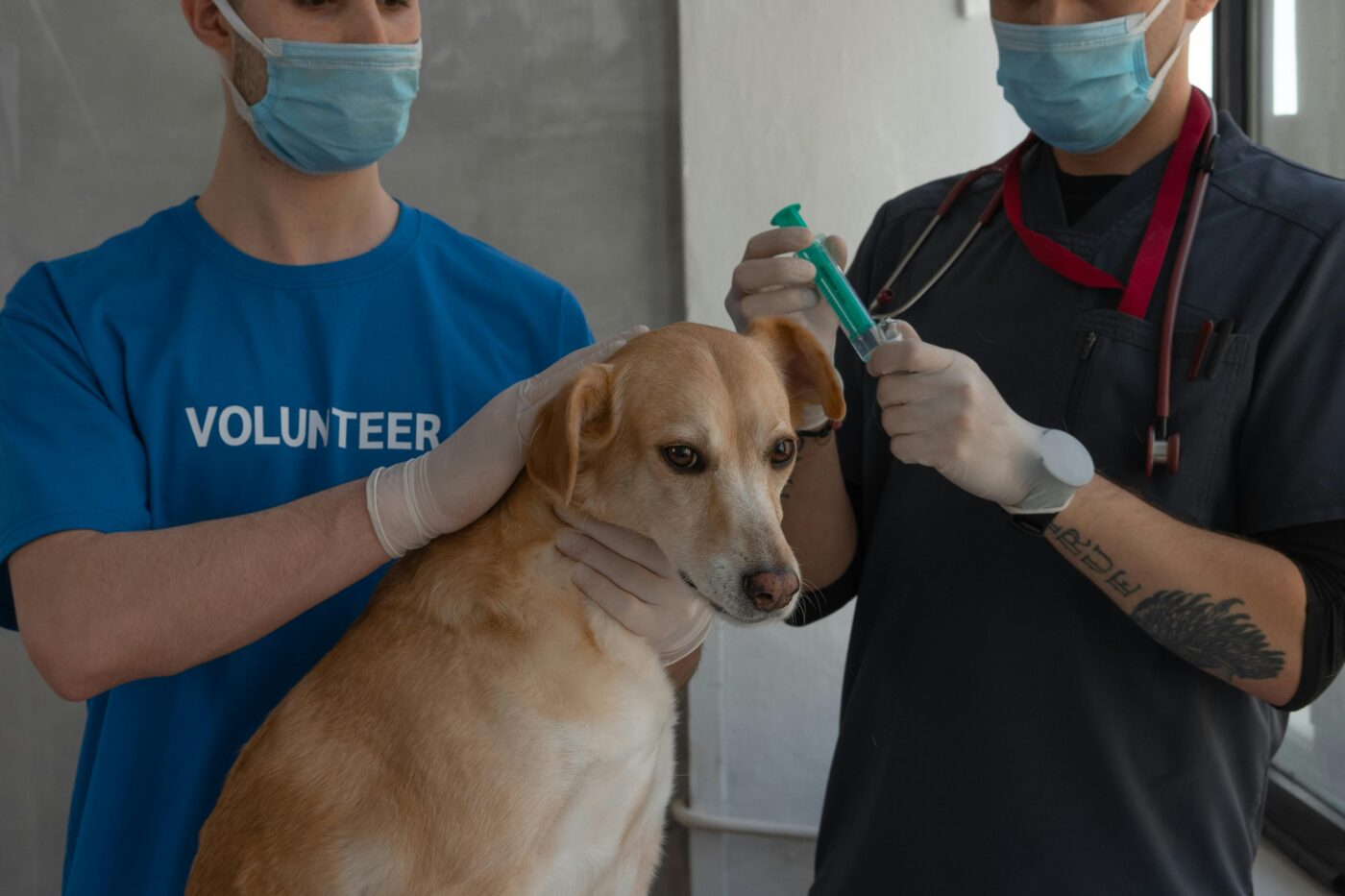 Shutterstock
Shutterstock
Vaccinations are critical to keeping your dog healthy, but the specific vaccinations your dog needs can depend on their age, breed, lifestyle, and even where you live. For instance, dogs that spend time in wooded areas may need additional vaccines, such as those for Lyme disease. Asking your vet about vaccinations ensures your dog is protected against common diseases and helps you stay on schedule with booster shots. Vaccines protect your dog and prevent the spread of diseases to other animals and humans.
Is My Dog at a Healthy Weight?
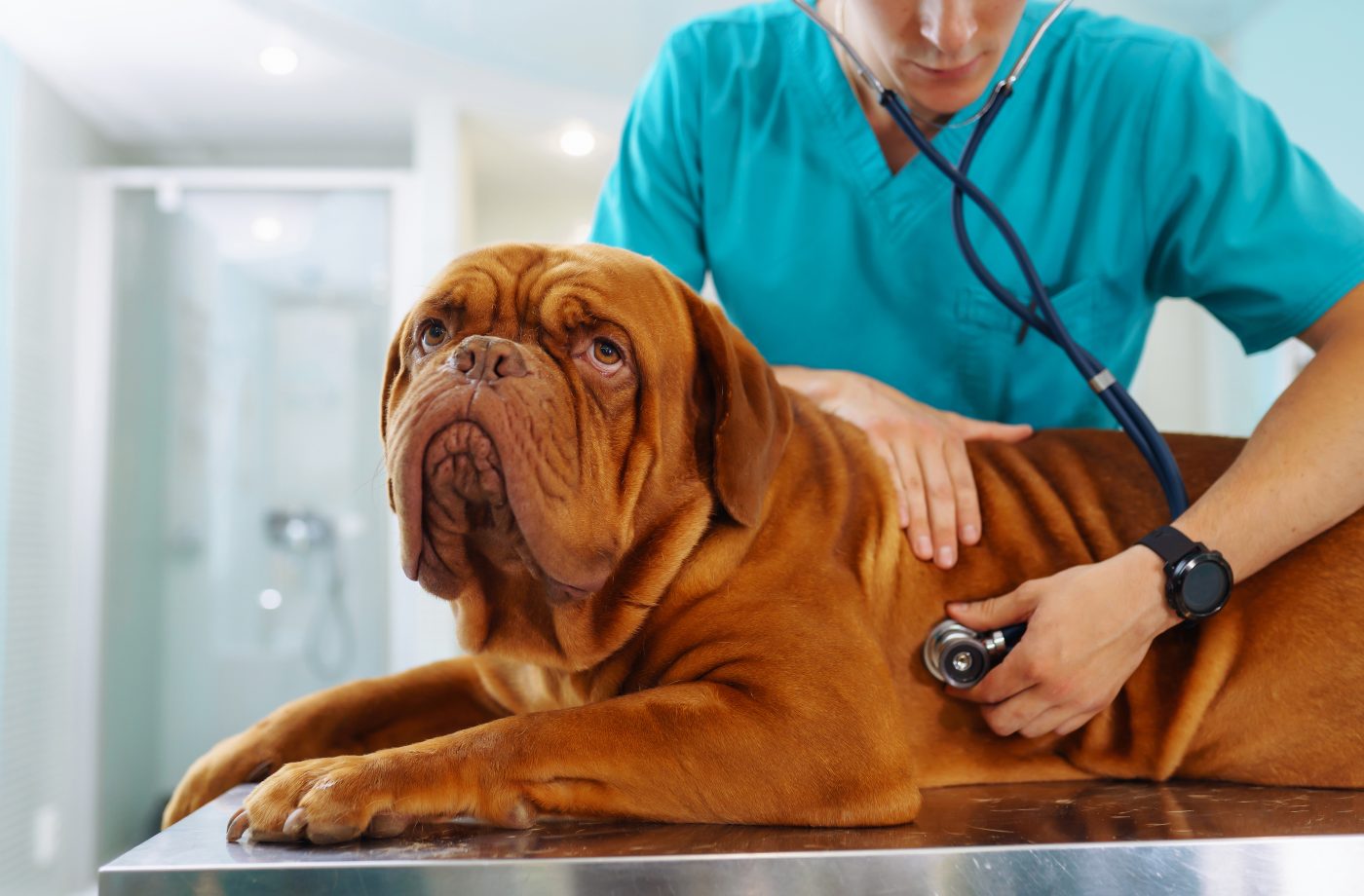 Shutterstock
Shutterstock
Weight management is crucial to a dog’s overall health. Obesity can lead to a host of health problems, including diabetes, joint issues, and heart disease while being underweight can indicate underlying health issues or malnutrition. Asking your vet about your dog’s weight ensures you’re aware of any changes and can adjust their diet and exercise routine accordingly. Your vet can recommend the best food and feeding schedule to maintain a healthy weight and improve your dog’s overall well-being.
What Should I Be Feeding My Dog?
 Shutterstock
Shutterstock
With so many dog food options available, deciding which is the best for your pet can be overwhelming. The ideal diet for your dog depends on their age, breed, size, and existing health conditions. Your vet can provide guidance on choosing the right food, including whether your dog needs a grain-free, high-protein, or low-fat diet. Discussing your dog’s nutrition with your vet is essential for ensuring they receive the right balance of nutrients for optimal health and energy.
How Often Should My Dog Have a Check-Up?
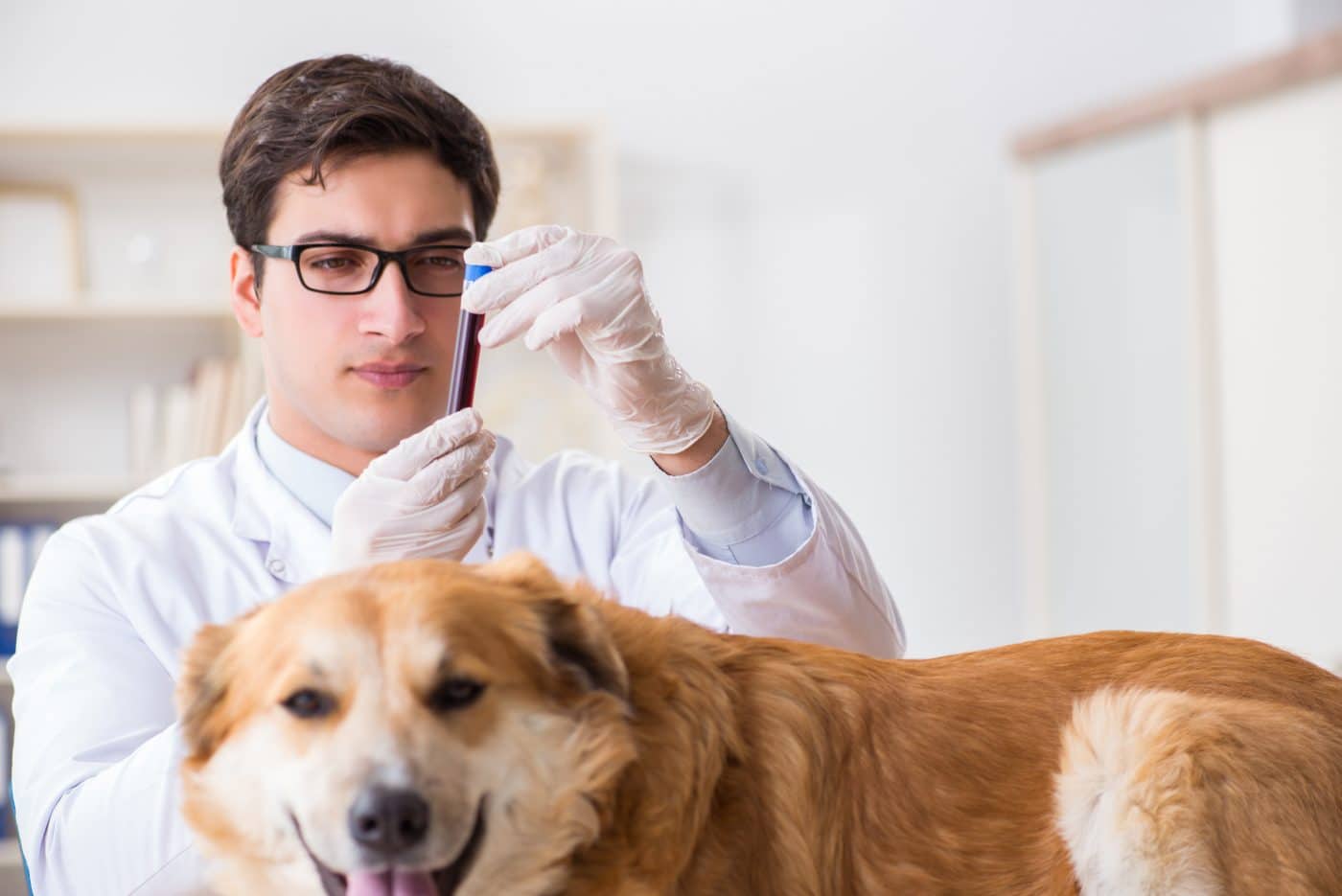 Shutterstock
Shutterstock
Routine vet visits are key to monitoring your dog’s health and catching potential issues early. However, the frequency of check-ups may vary based on your dog’s age, breed, and health status. Puppies and senior dogs may need more frequent visits, while healthy adult dogs can often go for annual check-ups. Ask your vet how often they recommend bringing your dog in for exams, as regular visits help ensure your dog stays in top condition and any health problems are caught early.
What Are the Signs of Dental Problems?
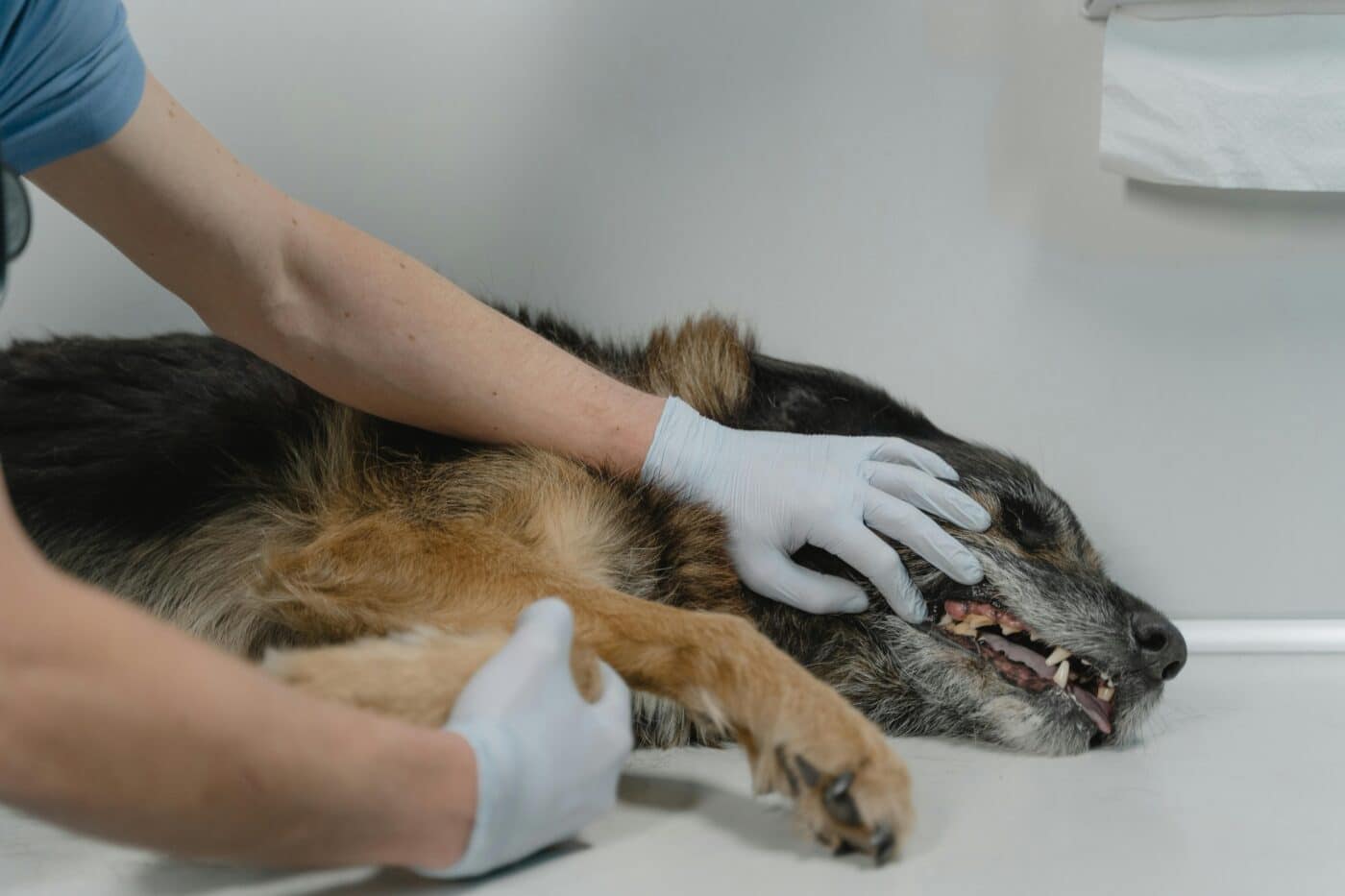 Shutterstock
Shutterstock
Dental health is often overlooked, but it is critical to your dog’s overall well-being. Dental disease can lead to pain, tooth loss, and even systemic health issues like heart disease. Asking your vet about the signs of dental problems—such as bad breath, difficulty chewing, or swollen gums—helps you catch issues early. Your vet can also advise on maintaining your dog’s dental hygiene through brushing, dental chews, or professional cleanings.
Does My Dog Need Parasite Prevention?
 Shutterstock
Shutterstock
Parasites like fleas, ticks, and heartworms can cause serious health problems for dogs, and prevention is key. Your pet may be more at risk for certain parasites depending on your location and your dog’s lifestyle. Asking your vet about the best parasite prevention methods ensures your dog is protected year-round. Your vet can recommend the right products for your dog’s needs, including oral medications, topical treatments, or collars that repel pests.
Are There Any Breed-Specific Health Concerns?
 Shutterstock
Shutterstock
Each dog breed has its own set of genetic predispositions to certain health conditions. For example, large breeds like German Shepherds are prone to hip dysplasia, while small breeds like Dachshunds may have back problems. Asking your vet about breed-specific health concerns can help you stay informed and proactive about managing potential issues. Your vet can guide you on what to watch for, what preventative measures to take, and whether your dog needs additional health screenings.
Is My Dog in Pain?
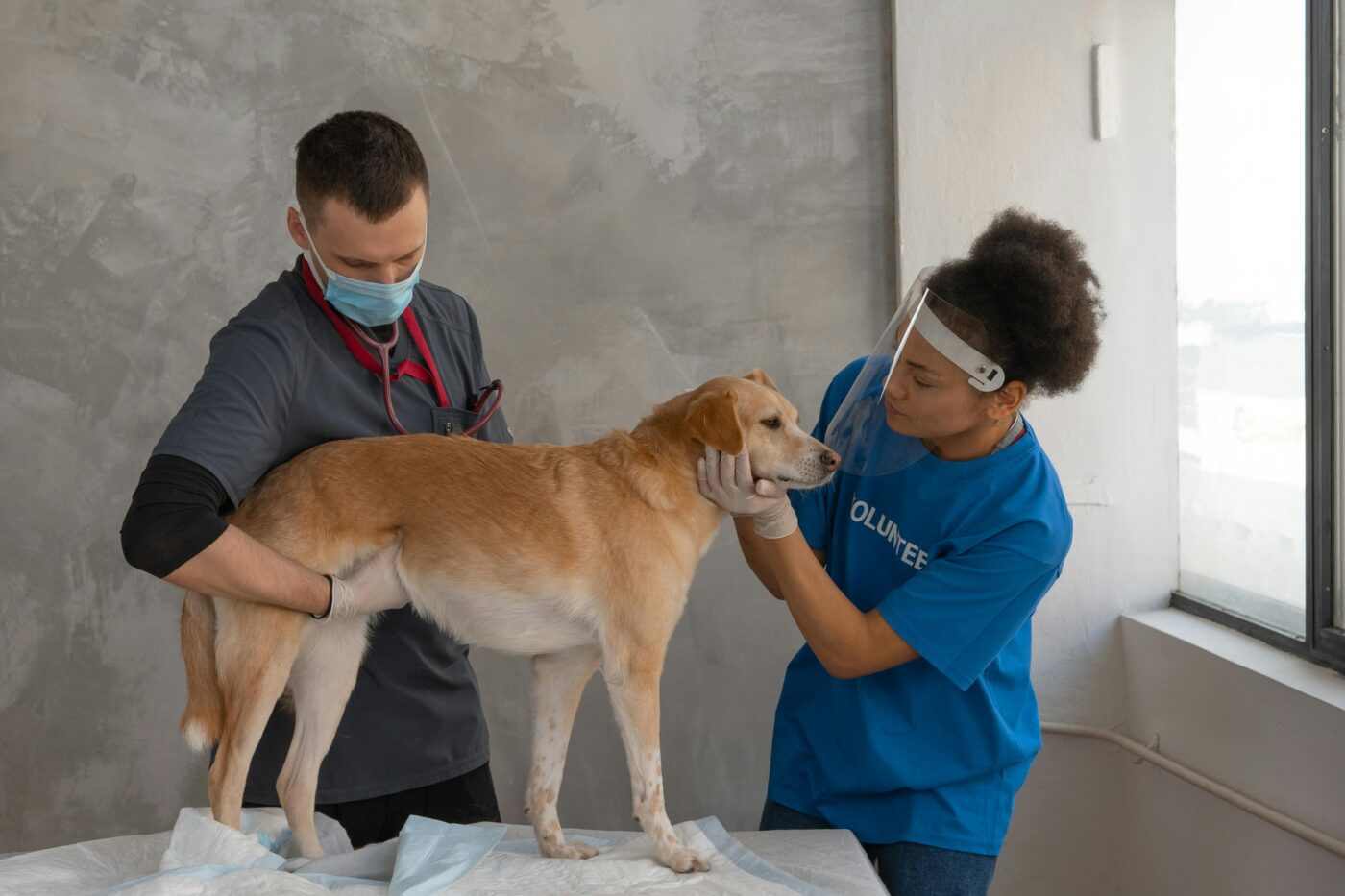 Shutterstock
Shutterstock
Dogs can be very good at hiding pain, so it’s important to ask your vet whether they see any signs that your dog may be uncomfortable. Pain can result from conditions like arthritis, dental disease, or injuries, and recognizing it early can improve your dog’s quality of life. Your vet can conduct a physical exam to check for signs of pain and may recommend treatment options such as pain medication, supplements, or lifestyle changes to help your dog feel more comfortable.
What Are the Best Ways to Exercise My Dog?
 Shutterstock
Shutterstock
Exercise is vital for a dog’s physical and mental health, but not all exercise is equal. Depending on your dog’s breed, age, and health, some types of exercise may be more appropriate than others. High-energy breeds, like Border Collies, need lots of activity, while older dogs or dogs with joint issues may require gentler exercise like swimming or slow walks. Ask your vet for recommendations on how to keep your dog active and engaged, ensuring their exercise routine matches their needs.
Should I Be Concerned About Behavioral Changes?
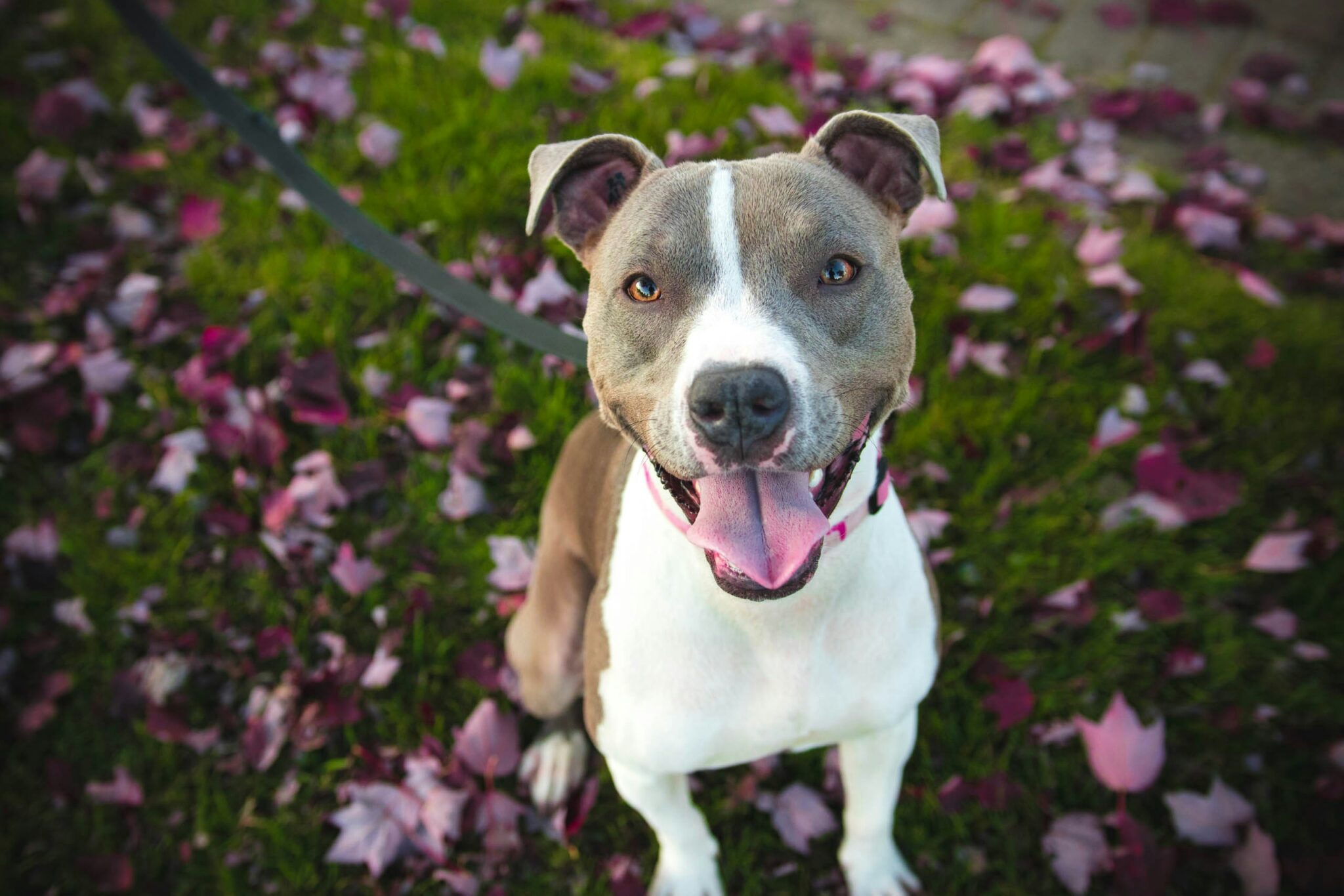 Shutterstock
Shutterstock
Dogs often communicate their health and well-being through their behavior, so any changes in your dog’s habits or temperament should be discussed with your vet. Behavioral changes such as increased aggression, anxiety, or lethargy can be indicators of underlying health problems, including pain, hormonal imbalances, or cognitive decline in older dogs. By asking your vet about any behavioral changes, you can address potential issues early and receive guidance on behavior management or further medical evaluation.
What Are the Signs of Allergies in Dogs?
 Shutterstock
Shutterstock
Allergies in dogs can manifest in various ways, from itchy skin to digestive problems. If your dog has frequent ear infections, is constantly scratching, or shows signs of gastrointestinal distress, they may have allergies. Ask your vet what symptoms to look for and how to identify potential environmental or food-related allergens. Your vet can recommend allergy testing or prescribe antihistamines, special diets, or medicated shampoos to manage your dog’s symptoms.
What Should I Know About My Senior Dog’s Health?
 Shutterstock
Shutterstock
As dogs age, their health needs change. Senior dogs are more susceptible to conditions like arthritis, diabetes, and cognitive decline and may require frequent check-ups and specialized care. Ask your vet what to expect as your dog ages and how to best support their health during their senior years. Your vet can recommend supplements, pain management options, and dietary changes to keep your senior dog comfortable and healthy.
Keeping Your Dog Healthy Starts with the Right Questions
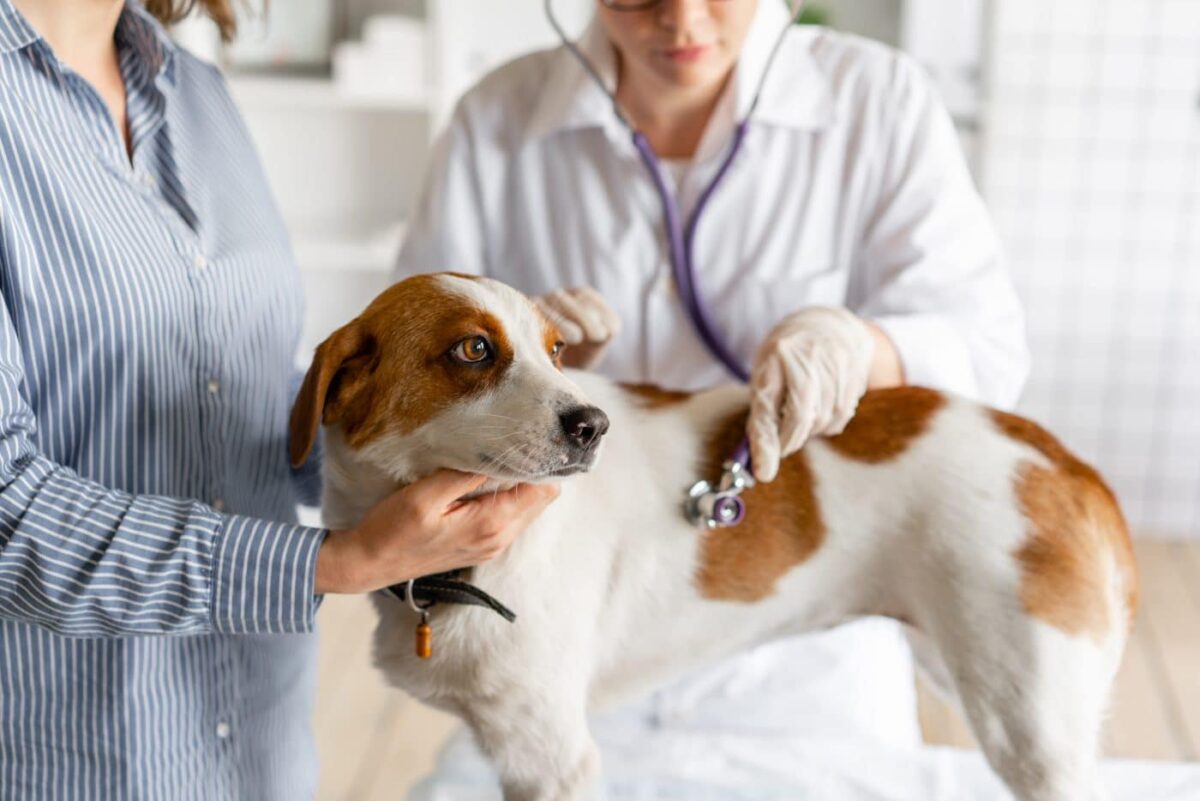
Asking your vet the right questions is essential to maintaining your dog’s health and happiness. From vaccinations and nutrition to dental care and exercise, staying informed ensures your dog gets the best care possible. Regular communication with your vet allows you to identify potential health issues early, allowing you to address concerns before they become serious. By being proactive and discussing your dog’s needs at every stage of life, you can help ensure a long, healthy, and fulfilling life for your furry companion.
 Toledo, United States.
Toledo, United States.